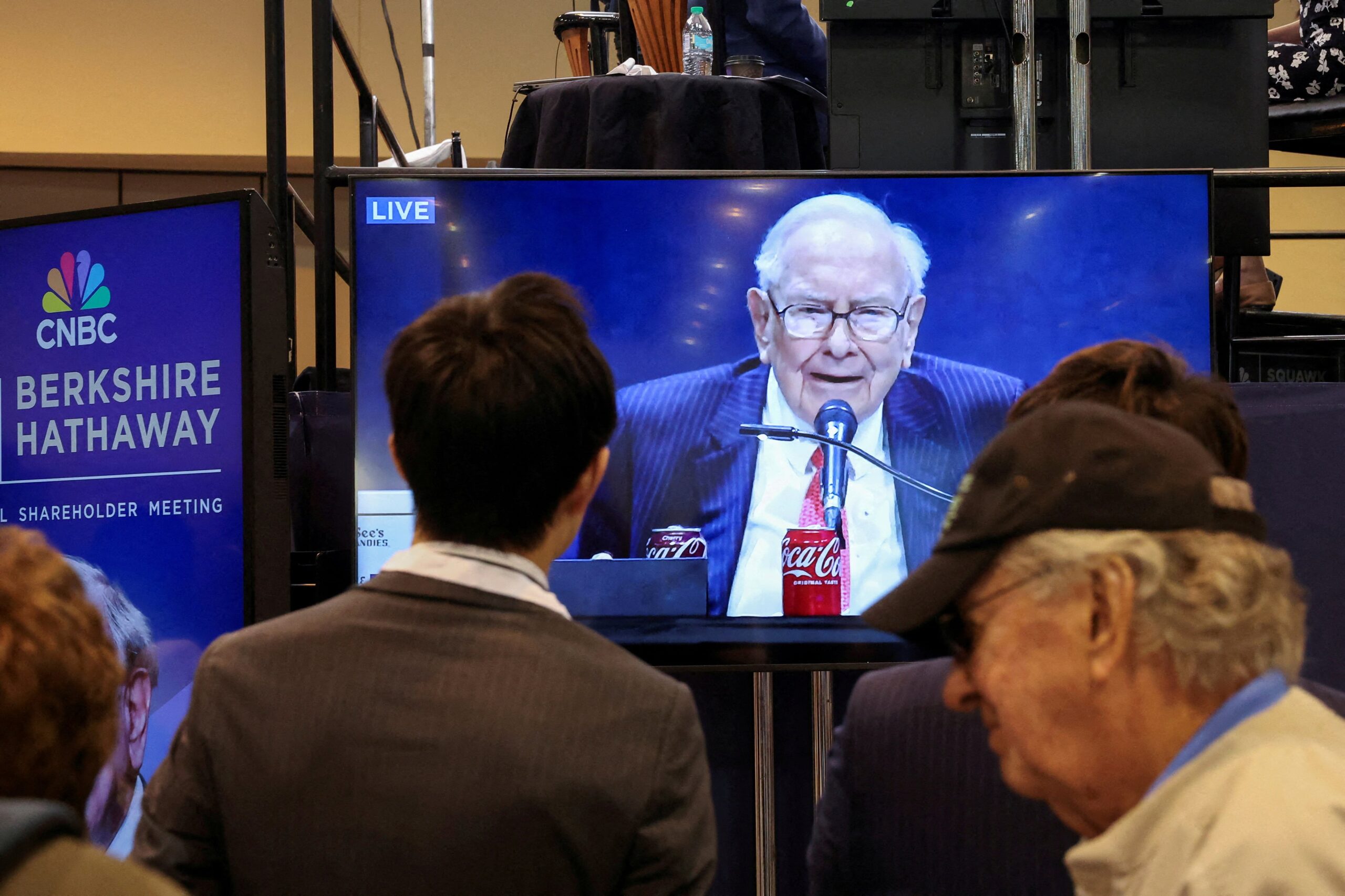Business
Berkshire Hathaway Reports $3.76 Billion Write-Down on Kraft Heinz

Berkshire Hathaway has announced a significant $3.76 billion write-down on its investment in Kraft Heinz during the second quarter of 2025, reflecting ongoing challenges in the food sector. This write-down, along with a 4 percent decline in quarterly operating profits, highlights the difficulties faced by the conglomerate as it grapples with changing market conditions.
The decision to reduce the value of its 27.4 percent stake in Kraft Heinz comes after the food company indicated it may explore strategic alternatives, including a potential breakup. Previously, Berkshire had carried this investment at above-market value, but economic uncertainties have led to the conclusion that the gap was “other-than-temporary.” This marks the second write-down for Kraft Heinz, following a $3 billion reduction in 2019, which Warren Buffett acknowledged as one of his investment missteps.
Berkshire Hathaway’s overall net income plummeted by 59 percent to $12.37 billion, down from $30.35 billion in the same quarter last year. The conglomerate’s operating income fell to $11.16 billion, equating to approximately $7,760 per Class A share, down from $11.6 billion a year earlier. The decrease in profits was primarily attributed to a decline in insurance underwriting premiums and lower gains from common stocks.
Market Conditions Affect Performance
The current economic landscape poses additional challenges for Berkshire Hathaway. With trade policies and tariffs creating uncertainty, many of its consumer businesses are experiencing declining revenue. For instance, Jazwares, a company known for producing popular plush toys, reported a staggering 38.5 percent drop in revenue during the first half of the year. Analysts describe the company’s overall results as lackluster, indicating that both Berkshire and the broader economy may be at a critical juncture.
Kyle Sanders, an analyst at Edward Jones, remarked on investor sentiment: “Investors are getting antsy and want to seek activity, and nothing is happening.” He noted that Buffett views the market as overvalued and intends to remain cautious, maintaining a near-record cash reserve of $344.1 billion and selling more stocks than he purchased for the 11th consecutive quarter.
Berkshire’s insurance sector, a significant revenue driver, reported a 12 percent decline in underwriting profit. This was largely due to challenges in reinsurance businesses and smaller insurance operations. Although Geico, one of its most recognized brands, saw a minor increase of 2 percent in pre-tax underwriting profit, the company is facing increased competition from rivals such as State Farm and Progressive.
Looking Ahead
Despite its challenges, Berkshire Hathaway continues to evaluate potential investments in the market. Analysts speculate that its BNSF unit might consider acquiring CSX to enhance its transcontinental railroad operations. The company has also reported that it is assessing the implications of the One Big Beautiful Bill Act, signed into law by U.S. President Donald Trump, on its renewable energy projects.
As Buffett prepares to step down as chief executive at the end of the year, he remains optimistic about Berkshire’s future. Vice Chairman Greg Abel is set to take over, although Buffett will remain in his role as chairman. The transition has raised questions about how the company will navigate its investment strategy without its long-standing leader.
Berkshire Hathaway’s diverse portfolio includes significant stakes in various sectors, including insurance, energy, and consumer brands. Despite the recent decline in shares—down more than 12 percent since Buffett’s announcement of his retirement—Berkshire’s foundation remains robust, with continued efforts to adapt to the evolving market landscape.
-

 World3 months ago
World3 months agoScientists Unearth Ancient Antarctic Ice to Unlock Climate Secrets
-

 Entertainment3 months ago
Entertainment3 months agoTrump and McCormick to Announce $70 Billion Energy Investments
-

 Lifestyle3 months ago
Lifestyle3 months agoTransLink Launches Food Truck Program to Boost Revenue in Vancouver
-

 Science3 months ago
Science3 months agoFour Astronauts Return to Earth After International Space Station Mission
-

 Technology2 months ago
Technology2 months agoApple Notes Enhances Functionality with Markdown Support in macOS 26
-

 Top Stories1 week ago
Top Stories1 week agoUrgent Update: Fatal Crash on Highway 99 Claims Life of Pitt Meadows Man
-

 Sports3 months ago
Sports3 months agoSearch Underway for Missing Hunter Amid Hokkaido Bear Emergency
-

 Politics2 months ago
Politics2 months agoUkrainian Tennis Star Elina Svitolina Faces Death Threats Online
-

 Technology3 months ago
Technology3 months agoFrosthaven Launches Early Access on July 31, 2025
-

 Politics3 months ago
Politics3 months agoCarney Engages First Nations Leaders at Development Law Summit
-

 Entertainment3 months ago
Entertainment3 months agoCalgary Theatre Troupe Revives Magic at Winnipeg Fringe Festival
-

 Politics1 week ago
Politics1 week agoShutdown Reflects Democratic Struggles Amid Economic Concerns


















